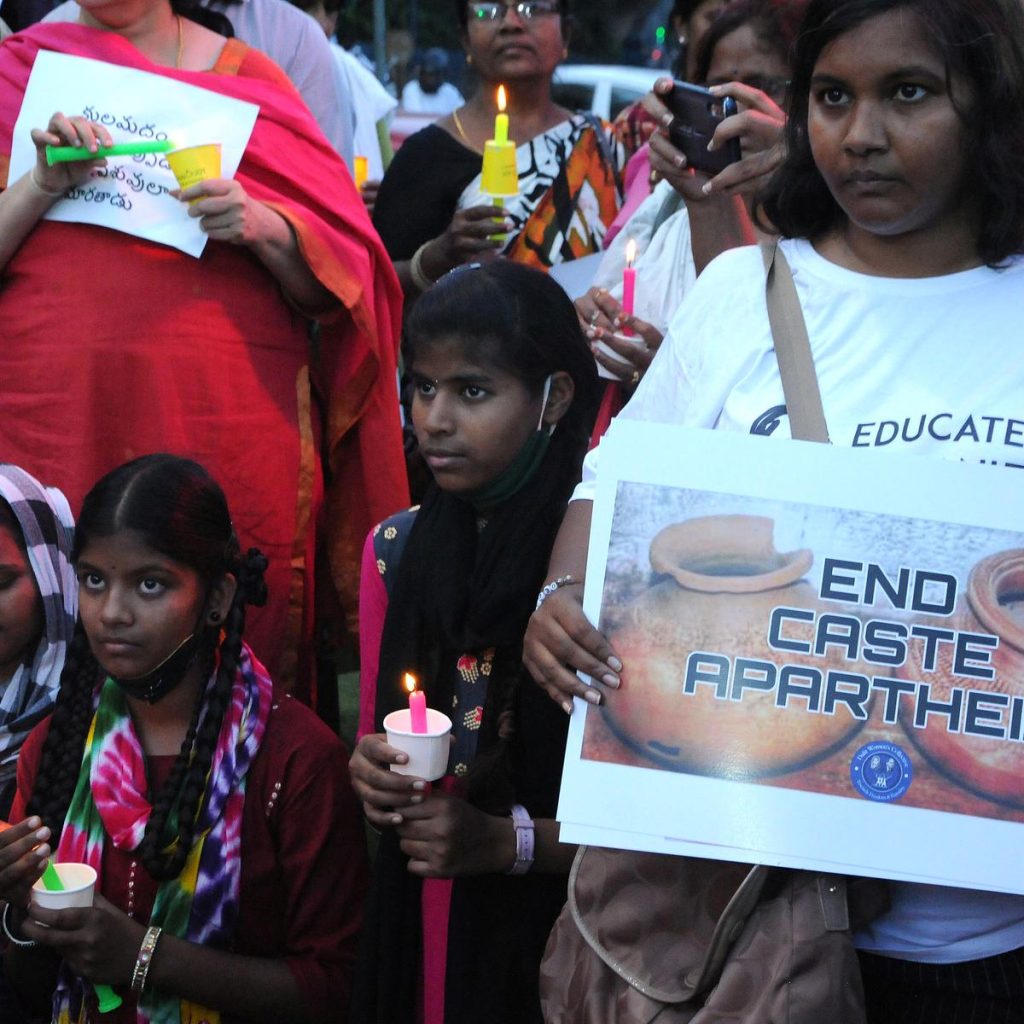Context:
Recently, a government report under the Scheduled Castes and Scheduled Tribes (Prevention of Atrocities) Act revealed alarming statistics on atrocities against Dalits in India.
Key Findings of report

- The report shows that 13 states accounted for 97.7% of all cases of atrocities against Scheduled Castes (SCs) in 2022.
- Atrocities against SCs: Of the total 51,656 cases registered under the law for Scheduled Castes (SCs) in 2022, Uttar Pradesh accounted for 23.78% of total cases with 12,287, followed by Rajasthan (16.75%) and Madhya Pradesh (14.97%).
- Other states with significant numbers of cases of atrocities against SCs were Bihar, which reported 6,799 (13.16%), Odisha, with 3,576 (6.93%), and Maharashtra with 2,706 (5.24%).
- These six states accounted for nearly 81% of the total cases.
- Atrocities against STs: The majority of cases of atrocities against STs were concentrated in 13 States.
- Of the 9,735 cases registered under the law for STs, Madhya Pradesh reported the highest number at 2,979 (30.61%), the report said.
- Rajasthan had the second-highest number of cases at 2,498 (25.66%) while Odisha recorded 773 (7.94%).
Investigation Status:
- 60.38% of SC-related cases led to charge sheets being filed, while 14.78% concluded with final reports due to reasons such as false claims or lack of evidence.
- In ST-related cases, 63.32% resulted in charge sheets, while 14.71% ended with final reports.
- Conviction Rate: The conviction rate for cases under the Act dropped to 32.4% in 2022 from 39.2% in 2020, raising concerns about the effectiveness of prosecution.
- Special Courts: Only 194 out of 498 districts in 14 states had established special courts to expedite trials in these cases, indicating a need for more dedicated judicial infrastructure.
The constitutional mechanism for the upliftment of Scheduled Castes and Scheduled Tribes:
- Article 15(4): Special provisions for advancement of SCs/STs.
- Article 16(4A): Reservation in promotion for SCs/STs in state services.
- Article 17: Abolishes untouchability.
- Article 46: State must promote educational and economic interests of SCs/STs and protect them from social injustice and exploitation.
- Article 330 & 332: Reservation of seats for SCs/STs in Lok Sabha and state assemblies.
- Article 335: Claims of SCs/STs considered in appointments to services and posts.
- Article 338: National Commission for SCs/STs to investigate, monitor, inquire, and advise on safeguards and socio-economic development.
- Part IX & IXA: Reservation for SCs/STs in local bodies.
Initiatives Taken by Government to Empower SCs
- Education Schemes: Schemes like Pre-Matric Scholarships and Post-Matric Scholarships for SC students aim to increase educational access and reduce dropout rates.
- Economic Empowerment: The National Scheduled Castes Finance and Development Corporation provides financial assistance for self-employment and skill development.
- Social Inclusion: Programs like the Pradhan Mantri Adarsh Gram Yojana focus on developing model villages with a significant SC population to promote inclusive growth.
- Entrepreneurship Support: Initiatives like the Stand-Up India Scheme encourage entrepreneurship among SC individuals by facilitating bank loans.
Also Read:
3rd Ministerial Meeting of Indo-Pacific Economic Framework for Prosperity

